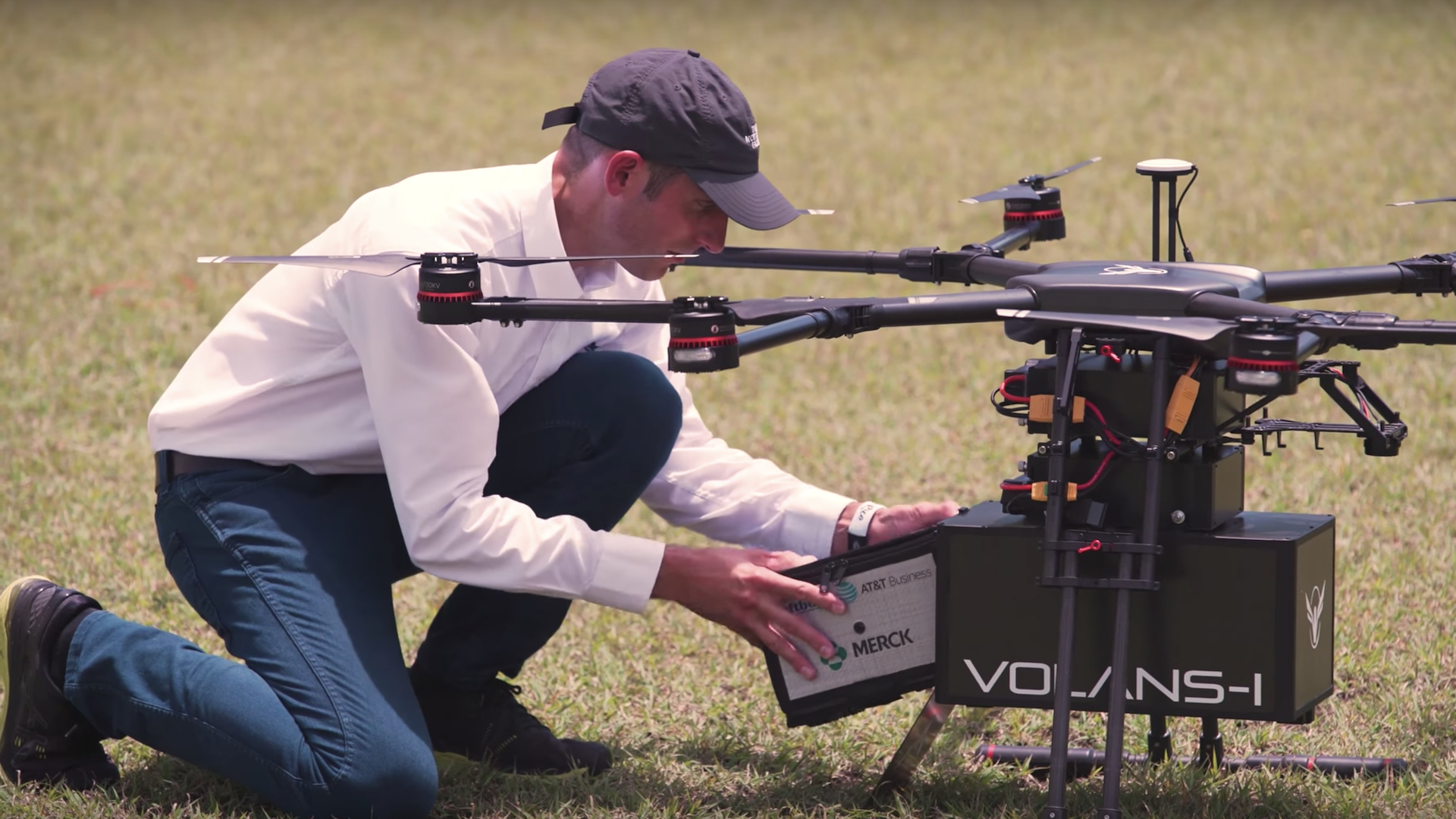

AT&T recently trialed medical payload deliveries in Puerto Rico with thermal packaging company Softbox and pharmaceutical company Merck, according to the telecom’s press release.
Softbox’s thermal-insulation packaging system, Skypod, is powered by AT&T’s Internet of Things (IoT) technology, which essentially tracks the Skypod’s external and internal temperatures and provides operators with its exact location via Long Term Evolution technology (LTE). Additionally, tampering with the Skypod module is easily assessed through light exposure data, as it can recognize if the box has been opened or not by processing additional daylight within it.
The successful test flights, accomplished at various locations across Puerto Rico, suggest that secure medical deliveries via drone can feasibly be achieved and help those in natural disaster areas with vital additional relief with the basic component set of a drone, protected payload module, ubiquitous cellular network, and tracking system.
“We’re proud to be working with AT&T in this dynamic, industry-first trial,” said Softbox Technical Director Richard Wood. “The connected Skypod could be rapidly deployed globally in times of humanitarian disaster relief.”
Let’s take a look at how this works, shall we?

If you recall, AT&T provided cellular service via drone through 40 square miles for Puerto Ricans in desperate need of communication post Hurricane Maria last year. This new endeavor is a logical next step, in terms of drone-centric disaster relief, and has placed AT&T in the ranks of companies like Matternet and Zipline who are currently participating in the UAS Integration Pilot Program with a focus on aerial medical supply deliveries.
The way this particular system works, specifically, is fairly simple: AT&T’s IoT technology tracks the Skypod with progress of the flight and the payload’s status viewed on the web or through a smartphone app. Alerts regarding the payload’s temperate change or an encroachment on geofenced areas will pop up if there are any significant irregularities.
Ultimately, this is great news for those of us who deem drones a perfect tool for humanitarian use cases. With Matternet actively testing it’s medical deliveries in Sunnybrook, North Carolina this week, and AT&T now joining the efforts to establish secure methods to do so as well, this is good news.